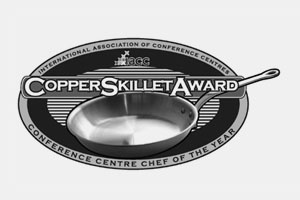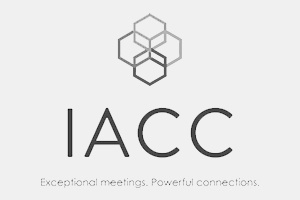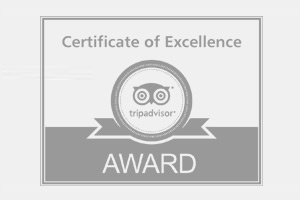IACC has released its top ten "insider tips" for meeting planners. The tips include advice on venue selection, connectivity, social media, negotiating rates, and budgeting tips with contributions from the IACC community.
1) Delegate Profile and Venue Preferences
Before starting the venue sourcing process, consider that your delegates might have a different view of what the ideal venue looks like. This can have can have a number of benefits and lend to the productivity of your event. Placing a delegate in an uninspiring environment for days on end, will lead to uninspiring results in terms of their retained learning. Organisational culture, demographics and even the countries from which your delegates travel will all play a part in their venue preferences. Do you know your delegates this well? Recent industry research proves how different generations prioritise venue facilities differently.
2) Expect The Same Standards from your Venue that You Provide to your Delegates
Think about it for a moment. Nothing you're delegates ask you for is too much trouble and you will move heaven and earth to accommodate their needs. Keep in mind that it is not too much to ask that the venue staff afford you the same standards when dealing with your requests at the enquiry stage. It's not too much to ask and don't settle for anything less, after all, that's why it's called the Hospitality Industry, right! It doesn't matter how big or small your meeting is, you should leave that meeting feeling that your group was the only one at the venue that day, even if you are one of ten other meetings going on! If you do not feel this way, tell your Conference Planner. A good venue will want you to walk away feeling completely satisfied and feeling great about choosing their venue for your meeting.
3) Do you get a 'beauty parade' or a Meeting and Site Inspection?
A lot that can and should be read into the first visit you make to a venue when considering it for your next meeting. Did you get a guided tour of the facilities with a lot of pointing out of the obvious, or did your Conference Planner see this as a business meeting and a chance to understand your requirements before looking to match these with their venue services and facilities? In other words, did they see this as an opportunity to learn what is important for your meeting, or did you get the same 'beauty parade' that every other Meeting Planner gets, whether they are organising a training course, board meeting or conference...
4) When some Connectivity is not Enough!
The days are gone when a venue would not offer Wi-Fi and that's a good thing right? Absolutely it is, but now were entering into the phase where fast, stable broadband is now a expectation and the average delegate needs to connect two devices at their meeting, if not three! Can the venue cope or will it leave your delegates with withdrawal symptoms that should never be seen!
Ask the venue what is the speed of the WiFi (bandwidth) and check out what the minimum is that you need for your meeting, by using an online usage estimator, such as IACC's Broadband Calculator. DO NOT settle for "...I think it's OK because we do not receive any complaints". That does will not wash with your delegates when they fail to connect with the office for the speaker cannot connect to a YouTube video as part of their presentation.
5) Bring Social Media off the Smartphone and Make it Part of the Furniture
Social Media Displays are coming into their own right now. At your next conference, consider that there are many different attendee touch points that can both benefit the conference and attendees, beyond hoping that delegates are tuned into their Social Media App on their smart phone. Creating a Social Media Hub display where all social media platforms come together in one place where everyone can view on a wall, is engaging and delegates can share the moment! It allows people experience Social Media in an environment where they can talk about it together and bring it off the very personal smartphone! Cvent SocialWall and Eventstagram for live display feeds are worth a look!
6) Negotiate the Right Package!
A good venue expects to mould its product around a Meeting Planners needs. (It's called being Flexible!) No two meetings are the same and a good conference venue allows their staff to be flexible and creative to provide the best meetings experiences. An experienced Conference Planner will want to know about any challenges that you may be having from a services or budget perspective, so don't be afraid to challenge what is not working for you!
7) Spend Wisely and Provide the Highest Impact
Not many Meeting Planners are afforded the luxury of arranging a meeting without a budget and their job is normally to create a miracle each time they organise a meeting. Conference Centre teams realise this and are happy to help you find the best way to exceed delegate expectations. One IACC member commented "for example we might suggest if you are down to your last $300 in your budget and you are planning a dinner for 30, perhaps adding a fourth course to your dinner would have more of an impact than four $75.00 centerpieces. Conference Centres always have something simple that can be placed in the middle of your tables that will fit in to the overall look. Ask us for help. We love sharing our ideas and thoughts".
8) Start your Meeting Early and End it Early
This is applicable especially if you have a number of guests that are local and are driving to your meeting. If you start your meeting at 8:00am instead of 9:00am you allow your attendees the opportunity to beat heavier rush hour. You beat the afternoon rush hour and it will feel like you are giving your attendees an afternoon off if they usually work until much later! Also, you get the first opportunity to partake in shared coffee breaks and earlier starts might allow you to schedule an early lunch to beat the rush there as well.
9) Review your Final Charges Before You Leave
All Conference Centres have their own format of providing you with your final bill. Ask your Meeting Planner for a face-to-face meeting or a phone conversation to go through the final charges line-by-line, to avoid surprises at the invoice stage. Direct conversation is much better when dealing with explanations of tax structures, gratuities and attrition charges. If you encounter a property that gives you a feeling that they are trying to find a way out of this post-event meeting, be wary. Ask them about this meeting when you initially book to see what kind of reaction you get. Every professional Conference Centre planner should be pleased to have a chance to review the charges with you as soon as possible, as it helps with facilitating quicker payment.
10) Are They as Passionate about Your Meetings as you are?
It is likely that you are a Meeting Planner because of your passion for organising events and bringing people together into an environment where they feel inspired and valued. You will be a 'detail' person and will know that meetings are an opportunity to help people and organisations perform at the top of their game! So can you say the same about the venue and the staff you are working with on your RFP? Don't be afraid to ask them what percentage of their overall business are meetings and conferences as it could provide an indication about how they structure and train their staff for your kind of event. If meetings are their primary focus and they value being certified by associations like IACC, it is a clear indication that they take meetings seriously and are passionate about being the best getting it right every time! The prominence of the Meetings Information pages on their website is another good way to figure out their focus!
Originally published by IACC.






